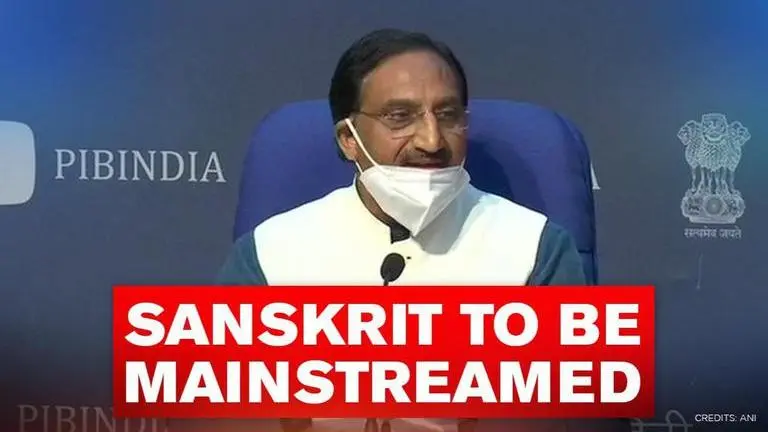Updated 29 July 2020 at 18:18 IST
Regional languages to be given importance, Sanskrit to be mainstreamed, under NEP
The ministers stated that a significant amount of focus would now be shifted towards Indian languages including Sanskrit in the education system
- Education News
- 2 min read

Union Ministers for Information and Broadcasting (I&B) Prakash Javadekar and Human Resource Development (HRD) and Ramesh Pokhriyal Nishank addressed a press conference on Wednesday outlining the finer points of the new National Education Policy (NEP) that has been approved by the Cabinet earlier in the day. Talking about the new policy, the ministers stated that a significant amount of focus would now be shifted towards Indian languages including Sanskrit in the education system which would be brought into the 'mainstream'.
The ministers added that under the NEP, the choice of the 'three-languages' that school boards offer would be given to the states and regions who will have full autonomy to decide the languages as long as 2 out of the 3 are Indian. They added that e-content of the syllabus would be made available in the regional languages, apart from English or Hindi.
Giving special emphasis to regional languages, the Cabinet also stated that Sanskrit Universities would be transformed into multidisciplinary institutions of higher learning, adding that an Indian Institute of Translation and Interpretation (IITI) would also be set up to study and teach Sanskrit and other Indian languages.
Advertisement
NEP passed, HRD Ministry renamed
A committee led by Chairman Dr K Kasturirangan formed the Draft National Education Policy 2019 on the foundational pillars of 'Access, Equity, Quality, Affordability, and Accountability.' While the NEP envisages restructuring the Indian education system, one of its major decision is to rename HRD ministry as the Ministry of Education (MoE). The committee headed by Kasturirangan is of opinion that the step will bring the focus back on education and learning.
Advertisement
The new education policy will create an independent regulatory body called the State School Regulatory Authority. NEP aims to provide pre-primary education to all by 2025. It aims at compulsory school education for all children in the age group of 3-18 years by 2030. It proposes new curricular with 5+3+3+4 structure. It continues with the three-language formula and adds "The Languages of India" with an aim to preserve all local languages.
Published By : Ananya Varma
Published On: 29 July 2020 at 18:18 IST
